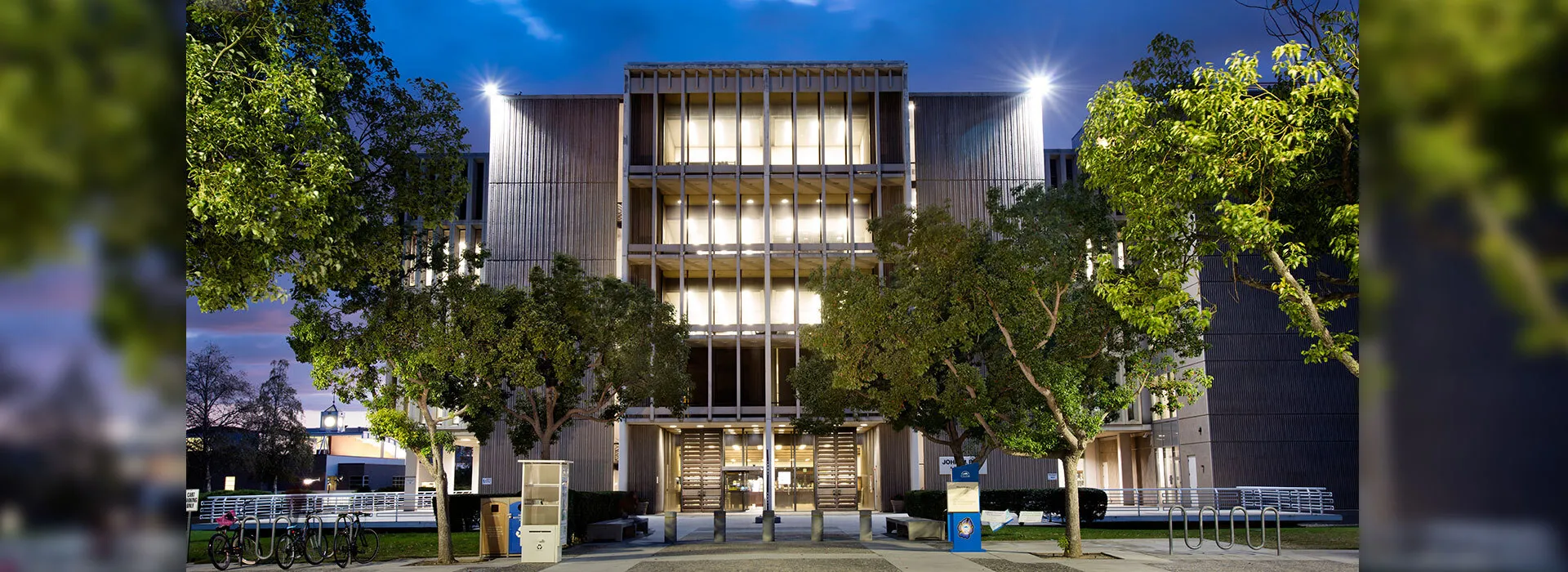
NOTE: Faculty, if you are interviewed and quoted by news media, or if your work has been cited, and you have an online link to the article or video, please let us know. Contact us at news@csusb.edu.
'1948: Creation and Catastrophe,' a documentary co-produced by Ahlam Muhtaseb, professor of communication studies at Cal State San Bernardino, is due to debut in mid-2017, but faces one more hurdle before it can be released, according The Washington Report on Middle East Affairs.
The film looks to the pivotal year that David Ben-Gurion, the head of the Jewish Agency, proclaimed the establishment of the state of Israel and how that impacted the Middle East.
The interviews, research and editing are complete “after eight years of traveling the world.” But there is one roadblock left: “We can’t release it until we pay companies like Getty Images, Associated Press and British Pathe (the) licensing fees for the rights to use their archival images and film,” Andy Trimlett, co-producer with Muhtaseb, said. Fundraising is underway. “All it will take to get ‘1948’ out into the world is $35,000.”
The article, published in the January/Feburary 2017 issue, can be read at “Last Roadblock for Documentary ‘1948, Creation and Catastrophe.’”
President Trump’s executive order temporarily halting travel from seven predominantly Muslim countries and indefinitely banning Syrian refugees has “serious practical, logical, and legal flaws,” wrote Brian Levin, director of the Center for the Study of Hate and Extremism at Cal State San Bernardino and criminal justice professor, and Hussein Ibish, an advisory board member for the center and senior fellow at the American Task Force on Palestine, in The Daily Beast.
“The essence of the order, and the source of most of its deepest flaws, is found in its sweeping and all-encompassing nature. It virtually shuts the door on refugees, halting the refugee program for the next four months, and capping the total number of all refugees accepted into the United States this year at 50,000. It indefinitely bans any and all Syrian refugees from entry. It also bans almost all entry by citizens of seven Muslim-majority countries: Iran, Iraq, Sudan, Somalia, Yemen, Libya, and Syria, for at least 90 days,” Levin and Ibish wrote.
“The order, because it is so sweeping and all-inclusive, makes no sense as a counterterrorism policy, because it treats countless millions of people as a pool of potential terrorists and assumes that U.S. government institutions can’t make rational and accurate judgments that certain visitors simply aren’t dangerous,” they wrote. “Many Americans may assume that banning entry to all citizens of those seven countries will make us safer. There simply is no valid reason to think that.”
The article was published on Feb. 6, 2017, and may be read at “Trump is proving the bad guys’ point with his terrorism executive order.”
And the concern over the nomination of U.S. Sen. Jeff Sessions (R-Ala.) to be the U.S. Attorney General has prompted concern on whether he would enforce hate crime laws. Levin wrote an opinion column on the topic for The Sun.
Levin wrote: “Following the Senate Judiciary Committee’s splintered approval of President Trump’s attorney general nominee, Alabama Sen. Jeff Sessions, along party lines on Wednesday, a critical issue regarding the exercise of his power remains opaque. As hate crimes have recently spiked, many are concerned about how vigorously the nominee will enforce the Shepard-Byrd Act — America’s federal hate crime law — when he was so vehemently opposed to its enactment.”
The article was published Feb. 3, 2017, and also appeared the Redlands Daily Facts. It can be read at “Would Sen. Sessions enforce hate crime law as AG? Guest commentary.”
The financial website WalletHub.com turned to Brandy Hadley, an assistant professor in the accounting and finance department, to be featured in an “Ask the Experts” column on credit and the use of credit cards by college students.
The article can be read at “Student credit cards with no credit.”
Mary Dropkin, who has taught harp at Cal State San Bernardino, the University of Redlands and Pomona College, is the president of the newly formed Inland Valley Harp Society, the newspaper reported.
The group held its inaugural meeting Jan. 22, which was attended by about 15 harpists and “friends of the harp.” A chapter of the American Harp Society, the Inland group was formed to accommodate the growing number of harpists in the area, said Dropkin. There are chapters in Los Angeles and Orange counties.
Dropkin is the principal harpist for the Redlands Symphony Orchestra, the Riverside County Philharmonic, the San Bernardino Symphony and the Desert Symphony.
The article was published Feb. 3, 2017, and also appeared in the Redlands Daily Facts and The Sun. Read the complete article at “ Inland harp fans unite, gather in Redlands.”